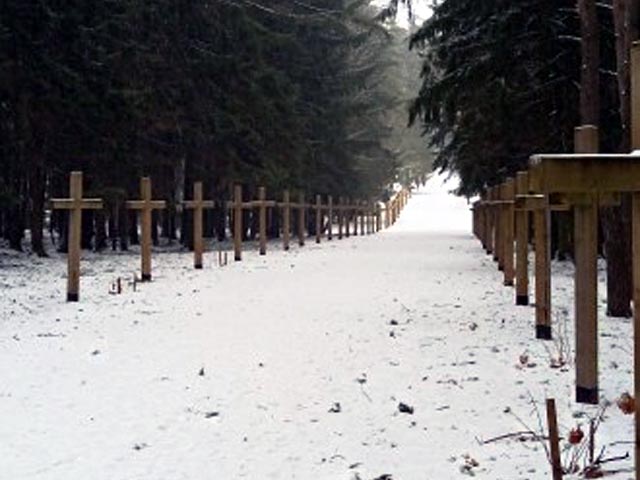Poland and Germany were both initiators and drivers of a New Eastern policy linked to the Eastern neighborhood and Russia/Soviet Union.
Uladzimir Matskevich: Kurapaty cannot just be given to the authorities, the result can be horrible

Irresponsible people can easily turn the place of sorrow into a tourist attraction, the society should participate in all stages of creating the national memorial.
“The scandal surrounding the construction of a business center in Kurapaty comes from a long-standing complex of various issues. This situation of a confrontation between volunteers and the developer could have been avoided,” stated Uladzimir Matskevich, philosopher and methodologist in his interview with the EuroBelarus Information Service.
“Experts in heritage protection outlined the protected area clearly and in detail back in 2012. The status of the area is determined by law; it is an obvious law violation to allocate a plot for construction there. Who did it? The officials abused their own laws. At the same time, it is clear that such neglect obviously leads to a conflict with the society, and business, developer, construction workers are getting involved, although they have nothing to do with it: they have their boss, and that boss has received a building permit issued by the authorities.”
How come the officials are absolutely indifferent to the place of sorrow?
“The Belarusan authorities today simply do not have an integral picture of society, there is no ideology, and they do not understand who they govern, why they administer the affairs of the state. The state addresses some local problems, disregarding the whole picture. Also, Kurapaty has become a concern of society, the authorities do not care about this place,” pointed out Uladzimir Matskevich.
The second reason for the confrontation in Kurapaty is “very poor communication between the authorities and society”:
“When the situation has reached the stage of construction work, it gained attention of a number of youth, Christian, national, cultural, historical organizations and initiatives etc. They are not some random people: all these years they put up crosses in Kurapaty, cleaned the territory, organized various events in memory of the innocent victims of the Red Terror. The construction could not go unnoticed. But why only now, at the moment when the construction has already begun? According to the law, all stages of this construction had to take place with the participation of the society.”
At the same time, it is a “blessing in disguise”: “The situation with Kurapaty led to the solidarity between rather disparate, often conflicting forces of opposition. Let’s hope that the achieved mutual understanding is here to stay.”
At the same time, as Uladzimir Matskevich notes, “there is a new plot unfolding: the authorities, who all these years opposed the idea of making a memorial in Kurapaty, now in the person of Pavel Yakubovich, one of the ideological leaders of the regime, have loudly declared that this place of people's sorrow must become a memorial.”
“And they are already starting to fuss about how to arrange this memorial,” pointed out Uladzimir Matskevich. “There were “design” proposals, for example, about replacing wooden crosses with metal ones. We need serious project work of experts to make this place a real monument to the victims of the Stalin regime, a reminder of the criminal nature of the Soviet authorities.”
Therefore, according to the philosopher, the victory “gained by the activists from the most diverse socio-political structures should not end — other problems should be resolved in the interaction as well.” “This time the society should be present at all stages of the creation of the memorial. We cannot just give Kurapaty to the authorities who can well make a tourist attraction out of a national memorial,” concluded Uladzimir Matskevich.
Others
-
Uladzimir Matskevich: The sooner the "Union State" is denounced, the better for Belarus
Not only does the “Union State” undermine the establishment of civilized relations with Europe, but it hinders the possibility of normal relations between Belarus and Russia.
-
Uladzimir Matskevich: The regime can no longer control the situation in the country
The authorities are unable to prolong the social contract with the people: there is no way out of the social crisis.
-
Press release of the BNP in connection with the next round of the dialogue in the format of the EU-Belarus Coordination Group
Belarusan National Platform of the Eastern Partnership Civil Society Forum welcomes the dialogue process in the format of the EU-Belarus Coordination Group, the third round of which was held in Minsk on 3-4 April 2017.
-
Hennadiy Maksak: Europe must react adequately to the events in Minsk
A new wave of political repressions should make the EU return to tougher policy towards the Belarusan regime.








Comments
From farewell to a new Eastern policy and towards a new development
Poland and Germany were both initiators and drivers of a New Eastern policy linked to the Eastern neighborhood and Russia/Soviet Union.